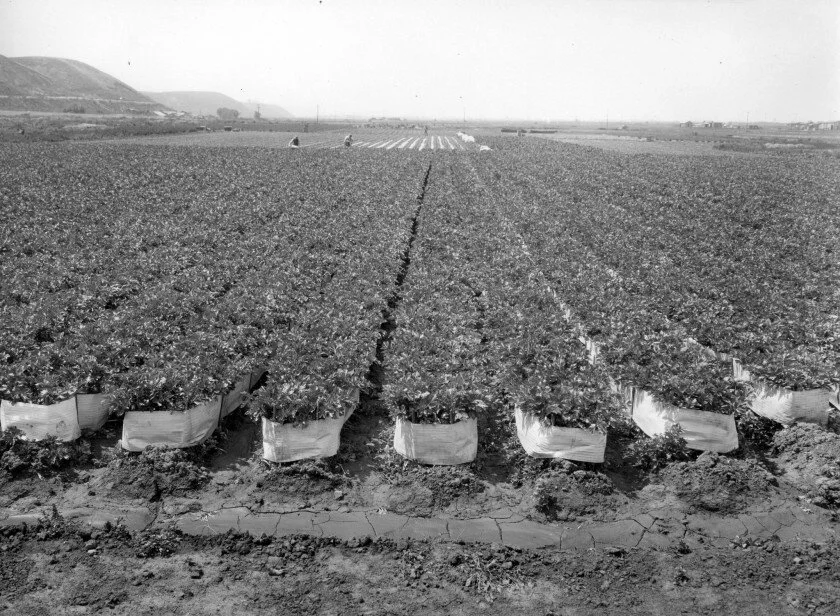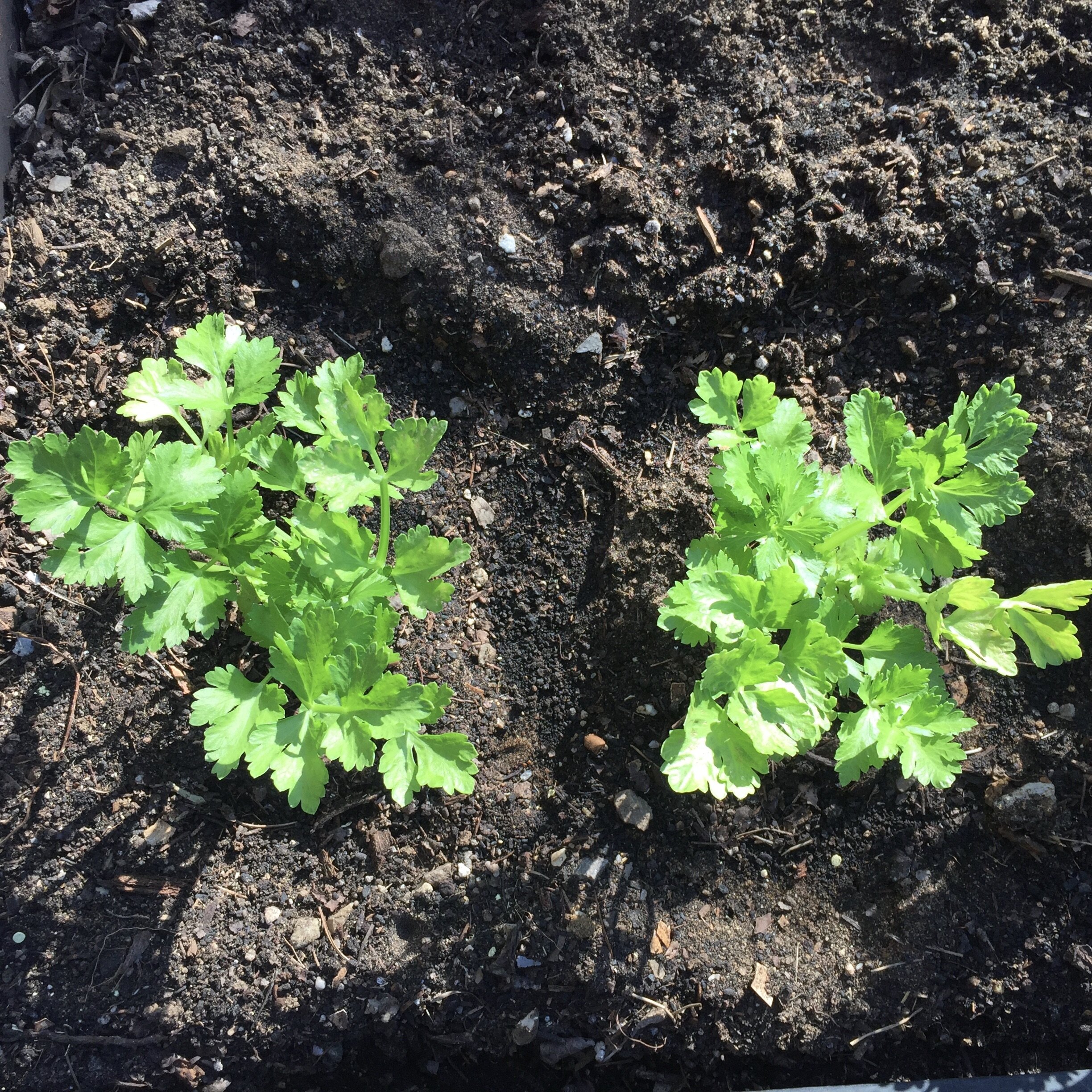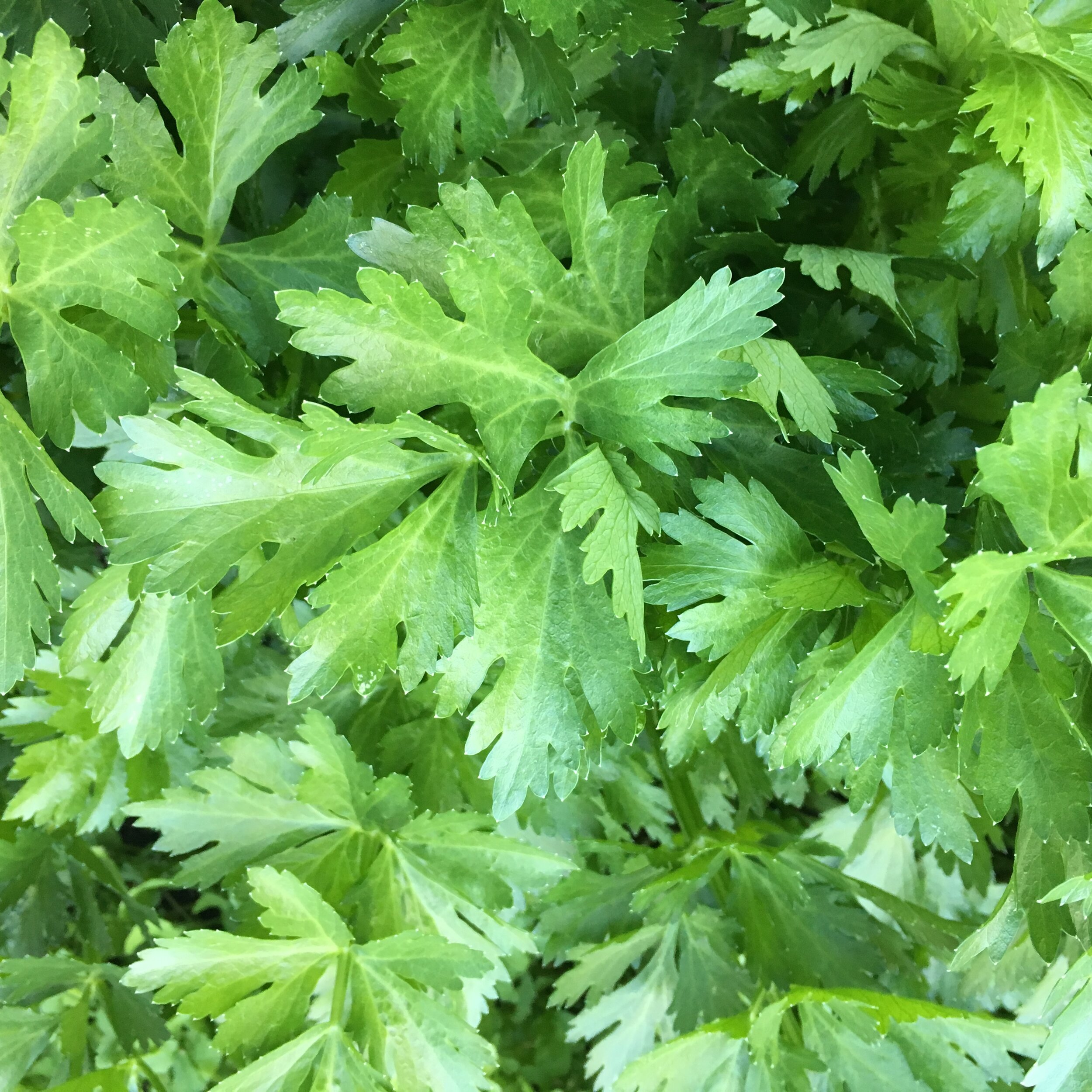Celery in a Fog Belt
This week has been very foggy here in Point Loma. High temperatures inland cause heavy fog to form at the coast. I hear an occasional fog horn and when we awaken our street is shrouded in fog. A fog bank pussyfoots about the ‘hood during the day and we have no sun. I think of Hide and Seek Fog by Alvin Tresselt, a favorite book I read to my children and now my grandchildren.
It seemed the time to repost an earlier blog post on celery in a fog belt.
Ventura County, Chula Vista, Venice, Santa Maria and Salinas. What do these places have in common? They are all cool, coastal locations where celery was or is grown . Like these, Point Loma, where I grow celery every winter is in a fog belt.
So what do you know about this humble, off-neglected vegetable? For example, did you know that today, 80% of the nation’s celery is California grown, in Ventura County, Santa Maria and Salinas? Read on.
“In the 1930s and ’40s, when Los Angeles was the leading agricultural county in the nation, celery was its largest vegetable crop and Venice was the prime growing area.”—LA Times, June 5, 2019 Note the fog in the photo below.
Venice Belle celery label printed for Venice Celery Distributors in 1939. (David Karp)
I am an ardent fan of homegrown celery. On occasion I’ll cut a stalk and munch as I wander around the garden. My dad loved celery. It was his favorite snack, though he did not grow it in his coastal, San Clemente garden. He would have, I’m sure if transplants were available during his peak gardening years in the 1980’s and 1990’s. Seeds are notoriously difficult to germinate. Commercially, celery is almost exclusively grown from starts.
If you want to get nerdy, check out Celery Production in California at the UC Vegetable Research & Information Center.
Or you can read about how I grow celery in my garden, check this blogpost: Planting My Winter Garden: Celery or the Related Posts at the end of this piece. BTW, my favorite variety to grow is the open-pollinated, ‘Tango.’
Then there’s the LA Times article Everything you didn’t even know you wanted to know about celery which further explores the history of growing celery in California and the clamoring for celery because of the purported health benefits, historically and more recently. Don’t fall for it.
For more on the botanical and anthropological aspects of celery check NPR’s The Salt blog, Celery: Why? Hint: there are Mediterranean and East Asian origins.
For culinary inspiration there’s always Specialty Produce on Celery.
The celery harvest in Ventura, California. Watercolor by Gerry Segismundo.
I’ve spent many summers in Ventura, also fog belt territory. This painting is a favorite, putting a soft glow on the hard work of agricultural workers to grow and harvest our celery.








